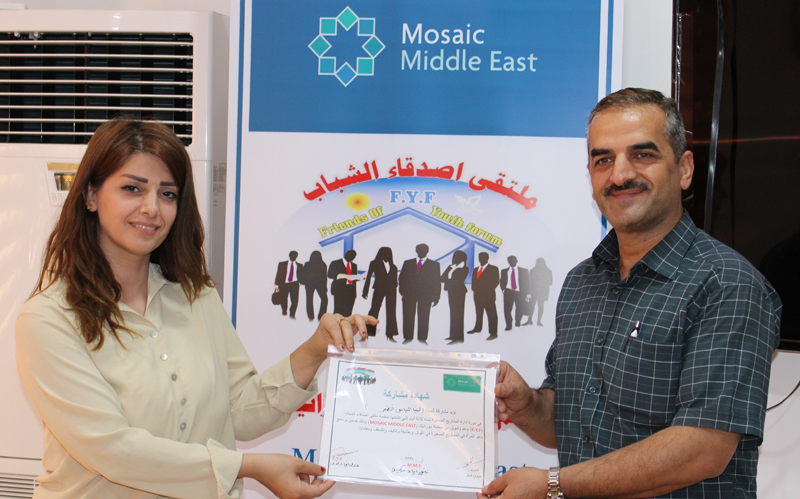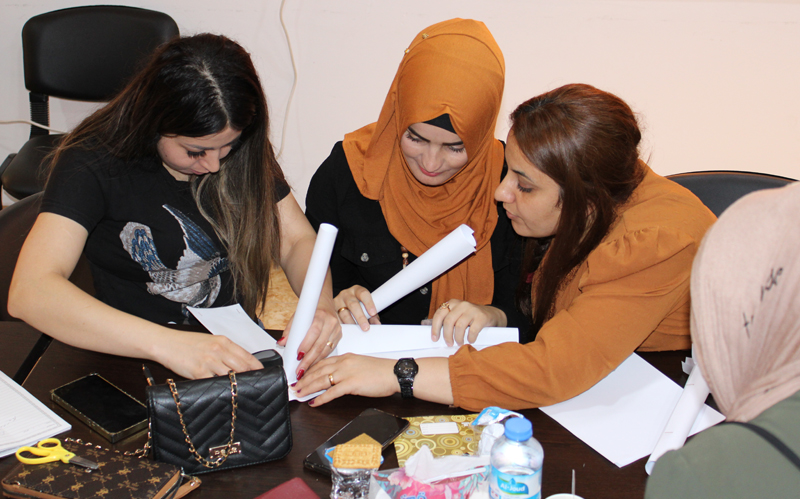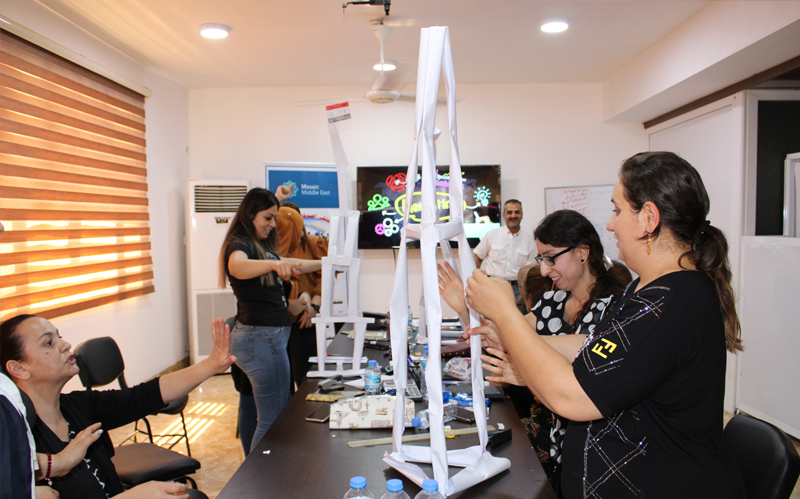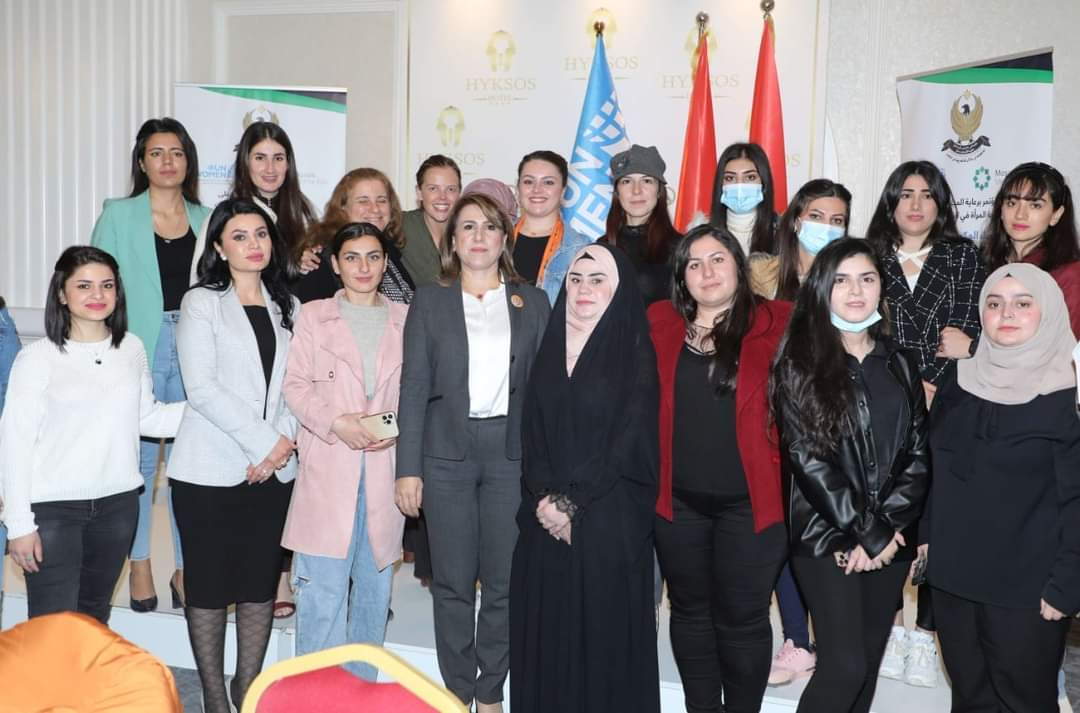One of Mosaic Middle East's key modes of operation is to listen, and respond. In late 2021 we helped host a conference for minority women in northern Iraq. More on this below. The young participants highlighted the lack of livelihood opportunities for them to independently run their own business in their towns and villages.
We heard them. And now we have been able to act - responding with an Economic Empowerment Project providing training and grants for women towards their business ventures.
Key facts at-a-glance

Part of our Nineveh SEED programme, the project is run with our implementation partners Friends of Youth Forum and managed by our Mosaic Middle East team on the ground in northern Iraq.
Friends of Youth Forum has delivered more than 50 income generation and livelihood projects targeting different beneficiaries across the Nineveh Plain and Mosul. They are committed to working with local authorities, community leaders and other relevant stakeholders.






Empowering Women
The Project Gallery
Part of our Nineveh SEED programme, the project is run with our implementation partners Friends of Youth Forum and managed by our Mosaic Middle East team on the ground in northern Iraq.
Friends of Youth Forum has delivered more than 50 income generation and livelihood projects targeting different beneficiaries across the Nineveh Plain and Mosul. They are committed to working with local authorities, community leaders and other relevant stakeholders.
We are grateful to The Jerusalem Trust, who have made this project possible. There are many more Nineveh SEED projects in planning phases, towards our goal of 35-45 projects before 2024. We welcome your prayers and donations to enable more people like these women to gain access to empowering help.
The Background
Mosaic Middle East in partnership with the Kurdistan Regional Government (KRG) and UN Women held a conference titled: Minority Women after ISIL: Challenges and Opportunities. The conference was held on 5 and 6 December 2021. The conference aimed to listen to young minority women to understand their situation in terms of livelihood and psychosocial needs and respond accordingly.
During the conference, the young women highlighted the lack of livelihood opportunities for them to independently run their own business in their towns and villages. Therefore, this project is on one level, a response to their direct point of need. But on another, broader level, this project is a 'pilot' and its associated outcomes will guide Mosaic Middle East's future interventions in the region around livelihood opportunities for minority women. It will help them to have a louder voice within their families and their own communities and empower them to achieve the outcomes they want to see. This will pave the way for them to be more engaged within their communities and stay in these areas to continue to build back from the devastation after ISIS.

